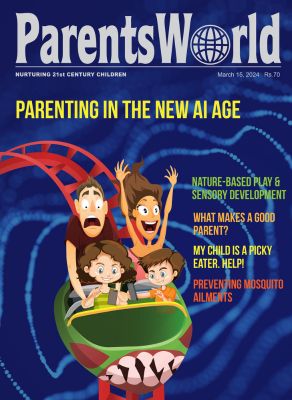For Karnataka’s beleaguered ruling BJP government fighting a spate of corruption scandals ahead of looming legislative assembly elections to be held in May, the Annual Status of Education Report (ASER) 2022, released in the national capital on January 18 and authored by the highly-respected Pratham Education Foundation, contains bad news. The first household child-testing report since the Covid-19 pandemic shut down schools countrywide for 82 weeks in 2020-21, ASER 2022 confirms that the ill-advised prolonged lockdown of schools has inflicted massive learning loss among children statewide. Worse, the learning loss of Karnataka’s 10.8 million children is greater than the national average.
According to ASER 2022 (which assesses elementary reading and numeracy skills of rural children), class V children who can read class II textbooks in government and private schools in Karnataka has dropped to a rock-bottom 30.2 percent from 46 percent in 2018, against the national average of 42.8 percent. Likewise in numeracy skills, Karnataka children are way behind the national average. Only 13.3 percent of class V children can do simple division sums against the national average of 25.6 percent. Shockingly, only 16.8 percent of class III children statewide can recognise numbers up to 99. “Clearly, the pandemic has resulted in learning loss. However, what the ASER 2022 figures seem to suggest is that the loss is much greater in some states,” says Dr. Wilima Wadhwa, director of ASER Centre.
Karnataka is one of five states nationwide where children have suffered over 10 percentage drop in the reading capability of class V children. “Drops of more than 10 percentage points are visible in Uttarakhand, Rajasthan, Haryana, Karnataka, and Maharashtra,” says the report which attributes the decline in learning levels of children to the 82-week lockdown of schools during the pandemic, and unavailability of digital devices and internet connectivity for online learning.
ASER 2022, which surveyed 19,060 villages in 616 districts of rural India, tested the reading and arithmetic capabilities of 7 lakh children of 374,544 households nationwide. In Karnataka, 31,854 children in the age group three to 16 years were tested.
The survey makes other disturbing revelations about the condition of rural schools in Karnataka. It says that 14.1 percent of them don’t have useable girls’ toilets and 22.9 percent don’t provide drinking water facility. Shocking data for a state which is a hub of the 21st century ICT (information communication technologies) industry and enjoys a per capita income of Rs.165,371, 10 percent higher than the national per capita income of Rs.150,326 per year.
According to media reports, education ministry officials derive a measure of pride from ASER 2022 data which indicates that enrolment in government schools has increased from 69.9 percent in 2018 to 72.6 percent in 2022, reversing the trend of children migrating from government to private budget schools. However, the authors of ASER 2022 attribute this phenomenon to a substantial number of parents who suffered job loss and financial distress during the Covid pandemic, being obliged to send their children to free-of-charge government primaries where children also get a free mid-day meal.
“Educating children is a triangular transaction involving child, teacher and parent. The great majority of rural parents are illiterate and unable to provide children learning support at home. That’s why even though the government did a good job of reaching books and learning materials to children during the pandemic lockdown, in the absence of teachers, they were unable to learn. This explains why 70 percent of class V children in rural schools, who have been automatically promoted for two years, can’t read textbooks of class II. They had to learn entirely on their own or from equally deprived peers for almost two years,” says Dr. A.S. Seetharamu, former professor of education at the Institute of Social & Economic Change (ISEC), Bengaluru.
According to Dr. Seetharamu, the best solution for the state government is to urgently implement the Central government’s National Initiative for Proficiency and Reading with Understanding and Numeracy (NIPUN), a supplementary after-school programme. “NIPUN is a well-designed learning programme which should be immediately implemented starting with gram panchayat schools in the most backward rural districts,” advises Seetharamu.
But with corruption, caste and religious identity rhetoric dominating the political discourse as the legislative assembly election is a mere three months away, it’s doubtful that the damning conclusions of ASER 2022, highlighting the pathetic condition of Karnataka’s rural schools, and the NIPUN programme will get any attention.
Also Read: ASER: Decline in math & reading, unavailability of basic facilities in Karnataka



























